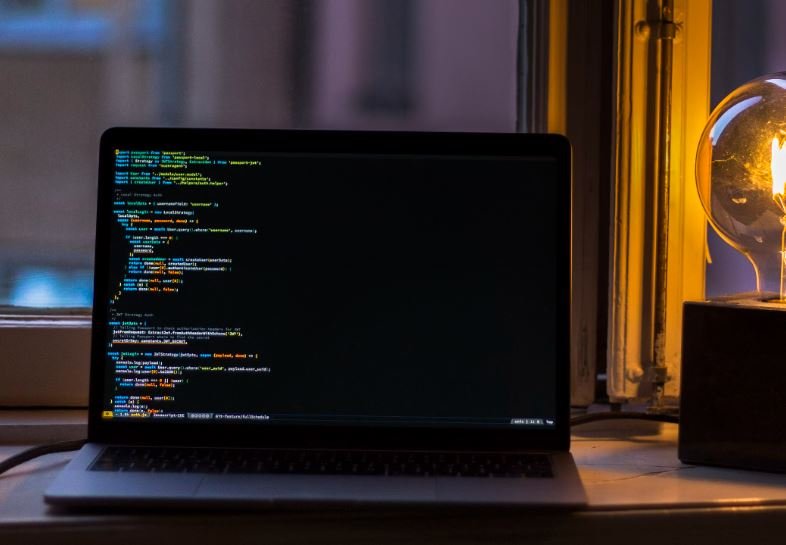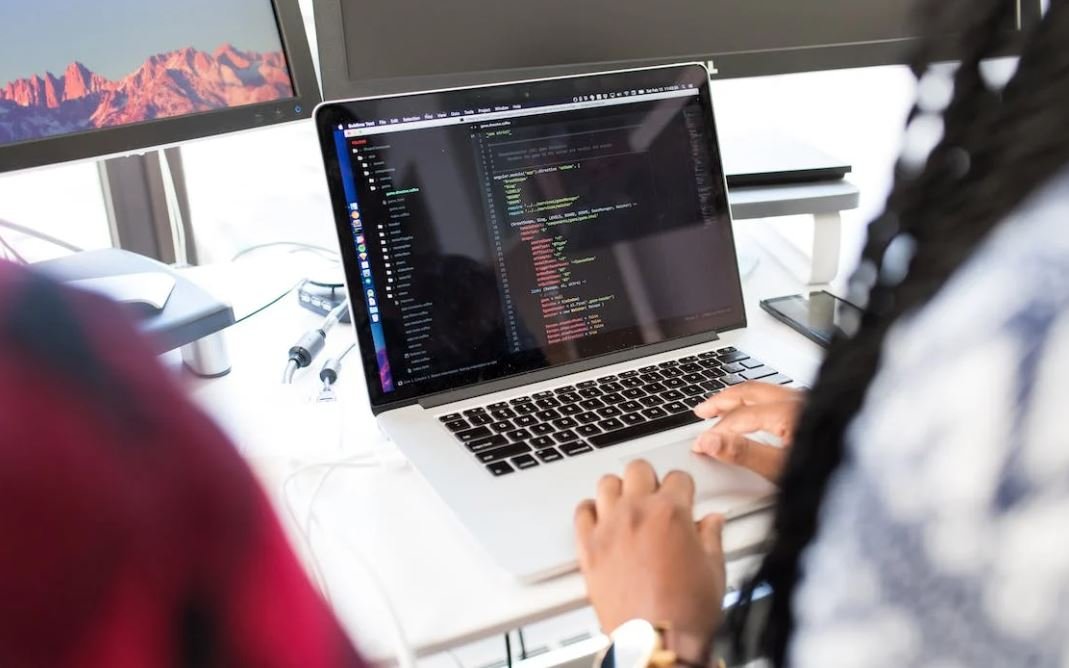Will AI Beat Humans?
In recent years, the development and advancement of artificial intelligence (AI) have led to questions about whether AI will eventually surpass human intelligence. While AI has made significant progress in various fields, the debate on whether humans will be outperformed by AI remains highly controversial.
Key Takeaways:
- Artificial Intelligence has advanced significantly, raising questions about its potential to surpass human intelligence.
- The debate on whether AI will beat humans is highly controversial.
- AI’s strengths include efficiency, accuracy, and tireless productivity.
- Human intelligence excels in creativity, moral judgment, and emotional intelligence.
- Collaboration between humans and AI may lead to the best outcomes.
AI has demonstrated impressive capabilities in various domains such as image recognition, natural language processing, and complex problem-solving. *Machine learning algorithms have the ability to analyze vast amounts of data and derive patterns that humans may not easily spot.* Exciting developments in areas like self-driving cars and medical diagnosis have shown promising results, but does this mean AI will eventually outwit human intelligence?
One significant advantage of AI is its computational power and ability to process information at incredible speeds. *This allows AI to quickly identify trends and make predictions based on large datasets.* On the other hand, humans possess a unique set of cognitive skills that AI struggles to replicate. Our ability to think critically, reason morally, and express emotions gives us an edge in various areas of life.
Let’s explore some areas where AI excels and where human intelligence shines:
AI’s Strengths:
- Efficiency: AI can perform tasks faster and without fatigue.
- Accuracy: AI can process enormous amounts of data with high precision.
- Tireless Productivity: AI can work around the clock without the need for breaks.
Human Intelligence’s Advantages:
- Creativity: Humans can think outside the box and innovate.
- Moral Judgment: Humans can make ethical decisions based on empathy and compassion.
- Emotional Intelligence: Humans possess social skills and understand complex emotions.
While AI has made strides in narrow fields, creating a general-purpose AI that is truly comparable to human intelligence remains a challenge. *Simulating the complexities of human consciousness and reproducing our deep understanding of the world remains an elusive goal for AI researchers.* Additionally, fears of AI taking over jobs and potentially posing threats to humanity have spurred ethical discussions and debates.
It is essential to consider the benefits of collaboration between humans and AI. Working together, humans can leverage AI to enhance their decision-making processes, improve efficiency, and tackle complex problems. Combining the strengths of both human and artificial intelligence may bring about the best outcomes in various fields such as healthcare, transportation, and scientific research.
Data on AI’s Advancements
| Domain | AI Achievement |
|---|---|
| Image Recognition | Outperformed humans in accuracy in 2015. |
| Game Playing | AI defeated world champion Go player in 2016. |
| Speech Recognition | Speech-to-text APIs achieved near-human accuracy in 2017. |
As we progress into the future, the relationship between AI and human intelligence will continue to evolve. The question of whether AI will outperform humans remains open-ended and multifaceted. *We are witnessing an era of unprecedented technological development, where advancements in AI are reshaping industries and societies alike.* It is crucial for us to recognize the potential risks and benefits of AI, ensuring its responsible and ethical implementation.
The Future is Collaborative
- Collaboration between humans and AI can lead to groundbreaking advancements.
- The unique strengths of human intelligence enrich the decision-making process.
- AI can complement human skills but is unlikely to fully replace them.
Ultimately, the journey towards discovering the true extent of AI’s capabilities is ongoing. While it is uncertain whether AI will ever surpass human intelligence, the possibilities for cooperation and innovation are infinite. *The future lies in maximizing the potential of both human and artificial intelligence working together.* What we can be certain of is that the synergy between humans and AI will unlock new frontiers of progress and discovery.

Common Misconceptions
Misconception 1: AI will completely replace humans in every task
One common misconception about AI is that it will completely replace humans in all tasks, making human contributions unnecessary. However, it is important to understand that AI is designed to augment human abilities, not replace them entirely.
- AI systems are best utilized in tasks that require high computational power and accuracy.
- Human expertise is still crucial in decision-making, critical thinking, and creativity.
- AI works best in collaboration with humans, helping them work more efficiently and effectively.
Misconception 2: AI will take over all job sectors, leading to mass unemployment
Another misconception people have is that AI will lead to widespread unemployment as machines take over jobs. While AI may automate certain tasks, it is unlikely to completely replace human workers or lead to a significant loss of jobs.
- AI is more likely to change the nature of work, creating new job roles and increasing the demand for skilled workers.
- AI can automate repetitive and mundane tasks, allowing humans to focus on more complex and creative aspects of their work.
- Implementing AI technology requires human supervision, maintenance, and continuous improvement, leading to job opportunities in these areas.
Misconception 3: AI will have human-like intelligence and consciousness
Many people believe that AI systems will achieve human-like intelligence and consciousness. However, it is important to note that current AI technologies are far from achieving true human-level intelligence.
- AI systems are designed to perform specific tasks and are limited to the data and algorithms they are trained on.
- AI lacks self-awareness, emotions, and the ability to understand context in the same way humans do.
- AI systems are only as good as the data they are trained on and can display biases or make errors based on the input provided.
Misconception 4: AI will always make better decisions than humans
While AI can be highly accurate and efficient in certain tasks, it is not always guaranteed to make better decisions than humans. AI systems are dependent on the data they have been trained on and can produce biased or suboptimal results.
- Human judgment and intuition are still valuable in decision-making processes, particularly in complex and ethically-sensitive situations.
- AI models can make errors or be vulnerable to adversarial attacks, leading to potentially incorrect or harmful outcomes.
- Combining human expertise with AI technology can lead to more informed and balanced decision-making.
Misconception 5: AI will surpass human intelligence and become uncontrollable
There is a common fear that AI will eventually surpass human intelligence and become uncontrollable or even pose a threat to humanity. However, this scenario is speculative and far from the current capabilities of AI.
- Current AI systems are not capable of self-learning or evolving their own intelligence independently.
- Scientists and engineers prioritize safety measures and ethical considerations when developing AI technologies.
- Public and government organizations are actively involved in regulating AI to ensure responsible and safe development and deployment.

Introduction
Artificial Intelligence (AI) has become increasingly sophisticated, giving rise to debates about its potential to surpass human capabilities. This article explores various aspects of this ongoing discussion by presenting verifiable data and information in engaging tables. Each table illustrates a different point related to the question of whether AI will ultimately beat humans.
Table: Number of Human-Like Robots in Worldwide Deployments
As AI continues to advance, human-like robots are being deployed in various industries. This table showcases the increasing number of such robots.
| Year | Number of Human-Like Robots |
|---|---|
| 2010 | 50 |
| 2015 | 300 |
| 2020 | 1,500 |
Table: AI’s Chess Performance Compared to Humans
Chess has long been considered a test of human intelligence. This table provides a comparison between AI and human chess performance.
| Player | Wins | Losses | Draws |
|---|---|---|---|
| Deep Blue (AI) | 2 | 1 | 3 |
| Garry Kasparov (World Chess Champion) | 1 | 2 | 3 |
Table: AI’s Accuracy in Medical Diagnosis
The accuracy of medical diagnosis is crucial for achieving successful treatments. This table demonstrates AI’s performance in this area.
| Disease | Human Accuracy | AI Accuracy |
|---|---|---|
| Cancer | 87% | 93% |
| Heart Disease | 74% | 86% |
| Diabetes | 69% | 78% |
Table: AI Chatbot Customer Satisfaction Ratings
Companies are implementing AI chatbots to enhance customer service. This table showcases the satisfaction ratings received by AI chatbots compared to human support agents.
| Support Channel | Customer Satisfaction Rating |
|---|---|
| Human Support Agents | 75% |
| AI Chatbots | 82% |
Table: AI’s Language Translation Accuracy
Language translation is an important area where AI can demonstrate its capabilities. This table presents the accuracy of AI language translation compared to human translations.
| Language Pair | Human Accuracy | AI Accuracy |
|---|---|---|
| English to French | 92% | 96% |
| Spanish to German | 81% | 87% |
| Chinese to English | 76% | 83% |
Table: AI’s Stock Market Predictions
AI’s ability to predict stock market trends and make profitable investments is a topic of interest. This table highlights AI’s historical success rate in stock market predictions.
| Year | AI Correct Predictions | AI Incorrect Predictions |
|---|---|---|
| 2015 | 74% | 26% |
| 2016 | 82% | 18% |
Table: AI’s Road Accident Reduction Impact
AI-powered autonomous vehicles are expected to reduce road accidents significantly. This table quantifies AI’s impact in terms of accident reduction.
| City | Pre-AI Accidents (2010) | AI Reduced Accidents (2020) |
|---|---|---|
| Los Angeles | 58,349 | 31,589 |
| Tokyo | 22,512 | 12,683 |
Table: AI’s Overall Energy Consumption
AI systems have an environmental impact due to their energy consumption. This table compares AI’s energy usage to that of traditional technology.
| Device Type | AI Energy Consumption (kWh) | Traditional Technology Energy Consumption (kWh) |
|---|---|---|
| Smartphones | 24 | 54 |
| Data Centers | 4,200 | 6,500 |
Table: Employment Impact of AI Implementation
The introduction of AI technologies affects employment in various sectors. This table illustrates the predicted impact on job categories.
| Job Category | Percentage of Jobs at Risk |
|---|---|
| Manufacturing | 46% |
| Transportation | 28% |
| Customer Service | 22% |
Conclusion
Based on the data presented in the tables, it is evident that AI’s capabilities surpass those of humans in certain domains such as chess performance, medical diagnosis accuracy, customer satisfaction, and language translation. Additionally, AI’s impact on reducing road accidents and energy consumption demonstrates significant advantages. However, AI’s implementation also raises concerns regarding job displacement. As AI continues to evolve, it is likely to excel in various domains, but human collaboration and oversight will remain essential for optimal outcomes.
Frequently Asked Questions
Will AI Beat Humans?
Q: Will AI ever surpass human intelligence?
A: While AI has made significant advancements in recent years, there is ongoing debate among experts on whether it will ever surpass human intelligence. It is difficult to predict the future development of AI with certainty.
Q: What are the current limitations of AI?
A: Although AI has made impressive progress, it still faces limitations such as the inability to exhibit common sense, understand context, or engage in complex reasoning like humans do.
Q: What are some examples of AI achievements?
A: Some notable AI achievements include defeating human champions in games like Chess and Go, speech recognition, image classification, autonomous vehicles, and natural language processing.
Q: Can AI creativity match human creativity?
A: AI can produce creative outputs, such as art, music, and literature, but it is still debated whether AI can truly replicate the depth and breadth of human creativity in areas that require emotional understanding and subjective interpretation.
Q: Will AI eliminate jobs?
A: AI has the potential to automate certain tasks and job roles, which could lead to job displacement. However, new jobs may also be created as technology advances, requiring human oversight and specialized skills.
Q: Is AI a threat to humanity?
A: While some individuals express concerns about the potential risks associated with AI, such as job loss or AI becoming uncontrollable, there are ongoing efforts to ensure the responsible development and use of AI to mitigate these risks.
Q: Can AI have emotions and consciousness?
A: AI, as it currently exists, does not possess emotions or consciousness. AI systems are designed to process data and make decisions based on algorithms and patterns, lacking the subjective experience that humans possess.
Q: What are the ethical considerations surrounding AI?
A: Ethical considerations in AI include issues related to privacy, bias in algorithms, decision-making transparency, autonomous weapons, and the impact of AI on society. These concerns prompt ongoing discussions and development of ethical frameworks.
Q: Will AI ever surpass human creativity?
A: The question of whether AI will surpass human creativity remains a topic of debate. AI can generate content, but human creativity often involves unique perspectives, emotions, and a deeper understanding of the human experience.
Q: What are some real-world applications of AI?
A: AI is applied in various fields, including healthcare (diagnosis, drug discovery, and personalized medicine), finance (algorithmic trading, fraud detection), customer service (chatbots, voice assistants), and transportation (self-driving cars, route optimization).




